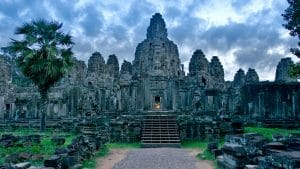This article will discuss investing in Cambodian property. It is my view that investing in Cambodian property is risky, and isn’t worth it for most investors.
However, let’s say you do want to invest in Cambodian property, what is the process and what are the arguments in favour of doing so?
That will be the topic of this article. If you want to contact me, you can do so using this page or via email – advice@adamfayed.com.
Introduction
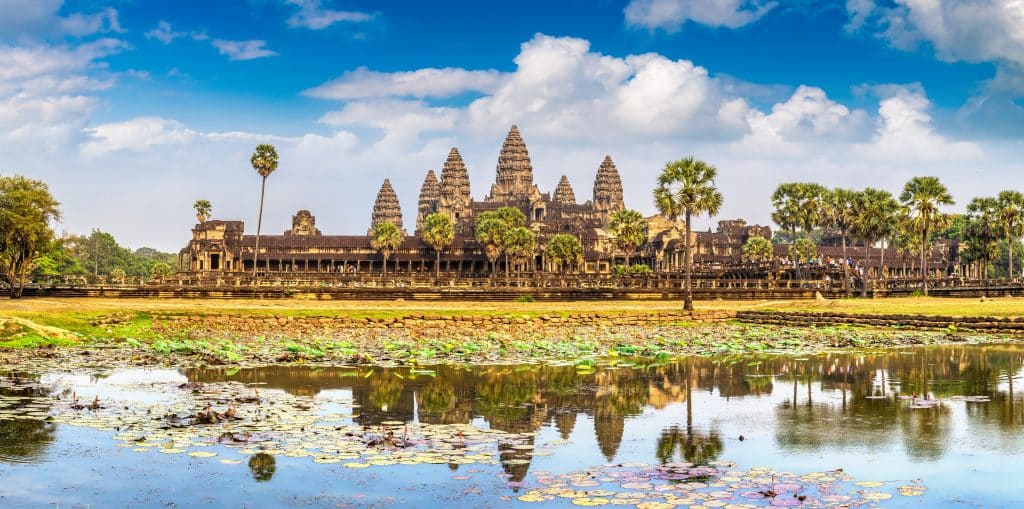
What makes Cambodia more attractive to foreign investors compared to other Asian countries?
At least three reasons: a fast-growing economy, coupled with a soft visa regime and a favorable investment climate.
Cambodia, unlike neighboring countries, has a soft visa regime and a much more favorable investment climate.
Perhaps this is one of the last Asian countries where there are really wonderful opportunities for foreign investors and entrepreneurs.
Cambodia is accessible to entrepreneurs (unlike Thailand, where a foreigner can only own 49% of his company, in Cambodia you are a full owner of 100% of the shares), but it has the same restriction as in Myanmar – a foreigner cannot own property.
Nevertheless, foreigners have the right to rent land and real estate in Cambodia for 99 years.
Cambodia is a small state in the south of the Indochina peninsula, famous for its beautiful landscapes, magnificent views of the bays and forests.
The hot climate year round attracts crowds of foreign tourists to Cambodia.
Although Cambodia is not an economically developed state, developing tourism, the agrarian industry and the production of clothing and footwear attract foreign investors. Investments in Cambodia, depending on the investment sphere, are aimed both at the long-term perspective and at the earning of immediate income.
Before choosing a scope for investment in Cambodia, a potential investor needs to consult a specialist who will not only advise the economic sector profitable for investments, but also help with the execution of the investment transaction.
Only after getting a competent advice on investment issues and arranges an investment transaction in accordance with the laws of Cambodia.
The most popular sectors among foreign investors are light industry, agricultural production, the purchase and construction of real estate, the tourism industry, mining, timber, rubber and rubber, and other areas of the economy.
Real estate investment in Cambodia is a very profitable investment option. Real estate in Cambodia does not yet have high prices, but, nevertheless, rental income, subsequent resale and other operations with acquired property are very impressive.
Although Cambodian law prohibits a foreign citizen from owning land, you can purchase a piece of land on behalf of your company located in the Kingdom of Cambodia.
In addition to tourism, Cambodia’s economy is enriched by the export of clothing, footwear, textiles, rubber, wood, tobacco, rice and seafood.
Each of these industries is actively and steadily developing, which gives a foreign investor an excellent opportunity to invest their capital and make a profit from sales.
Cambodia’s export partners are the United States, Germany, France and the United Kingdom. Some of these developed countries have provided Cambodia with a guaranteed export quota for their products.
Another industry favorable for investment is the extraction and export of minerals. Despite the fact that most of the country is occupied by forests, this state is rich in deposits of tin, iron, copper, zinc, gold, silver and other precious metals.
Cambodia also exports precious and semi-precious stones. Every year, investments in Cambodia are gaining momentum, which allows this country to develop at an accelerated pace.
- Why invest in Cambodia now?
As mentioned at the start of this article, the risks of investing in Cambodian property are too high for most people.
But what are the arguments in favour of doing so? Well historically, countries at the crossroads of economic routes have always been in a favorable position.
Cambodia is located at the crossroads of the economic flow of neighboring Thailand, and the developed trade through the Gulf of Thailand makes it a connecting country between fast-growing China and India.
Since 2004, Cambodia has been a member of the World Trade Organization (WTO) and the Association of Southeast Asian Nations (ASEAN). This provides privileged access to key markets in the USA, Korea and Europe.
Prime Minister Hun Sen has served in his post for over 30 years and retains significant support from a large network of business leaders in the region thanks to the strong economic growth of the Kingdom and its management of the national and military police.
Stable domestic policies influence the formation of a new middle class, which strives for urban centers. According to a study by Realestate.com.kh, in 2016, 79% of Cambodians expressed confidence in the purchase of real estate over the next several years.
Foreign agencies with a name on the real estate market have an important role in the urbanization process.
Therefore, the government is trying to create a stable favorable environment for foreign investors: 100% ownership of the company, except for land (rent for 99 years); creating incentives for investment; easy account opening and profit repatriation.
In addition to low land and labor prices, tax benefits, lower cost of living, investors are also attracted by the growing popularity of Cambodia as a tourist destination. Together with progressive urbanization, it raises the speed of infrastructure development to a new level.
Why is it important for real estate? The development of infrastructure in the conditions of the tourist flow multiplies development options in different directions and the emergence of new types of property and the improvement of existing ones: from the condominium to traditional Khmer wooden houses.
Along with nature, which makes the country a popular center for beach holidays, the rich cultural heritage of the Kingdom is also an enduring factor in attracting tourists.
The title of the world’s main tourist attraction, given in 2015 to the temples of the Angkor Wat Temples in Siem Reap (under the protection of UNESCO) caused a real tourist boom in Cambodia.
There are currently three operating international airports in Cambodia. The number of arrivals at the moment has already reached the figure of 5 million.
For neighboring Asian countries where gambling is prohibited, casinos are also particularly attractive. There are 60 of them in Cambodia.
Another 150 are planned to be built. Together with the development of various services for recreation and entertainment, this can earn Cambodia the status of the second Macau.
- Options of investments.
What kinds of investments are available if you want to invest in Cambodia?
- Long-term investment → Agriculture
If you have chosen a long-term investment strategy and want to create assets that will have value over the next 50 years, then you could look towards agriculture. Farming is widely supported by the government, so everyone wants to participate in this sector that is important for the country. In 2012, Cambodia received from China its FIRST order for the supply of rice. Jim Rogers argued that if you want to become rich, “become a Chinese farmer.” But even better, do not become a Chinese farmer and do not open your own business in a communist country, start an agricultural business and sell your rice to neighboring China. Cambodia is well positioned as an agricultural center in Southeast Asia. With the growth of economic development, an increase in population and middle class, Vietnam, China and Thailand need more food. In the 21st century, the general demand for food increased at times, but supply fell. Cambodia and Myanmar are strategically committed to running this business.
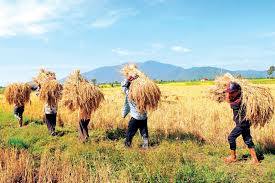
- Short-term investments → Tourism
In the coming years, tourism on the southeast coast will develop rapidly, unless the coronavirus will change the equation for the long-term. The Thai tourist market is already very crowded, and in Cambodia there are pristine beaches that can compete with any Siamese. Cambodia’s annual tourism growth exceeded 10%. In 2011, 2.8 million tourists visited Cambodia, which is 12% more than in 2010 – 2.5 million. Compare this data with 15 million tourists who visited Thailand, with 55% of them were those who returned home. The authorities are confident that by 2014 the number of international tourists will increase to 4 million, and by 2020 – up to 7 million. Obviously, tourism is on the rise, and there are so many amazing desert beaches ready to use. Instead of spending your money in Phuket, why not invest it in opening your own Phuket. Foreigners cannot own land, but can buy apartments or other real estate. True, a passport is required for this.
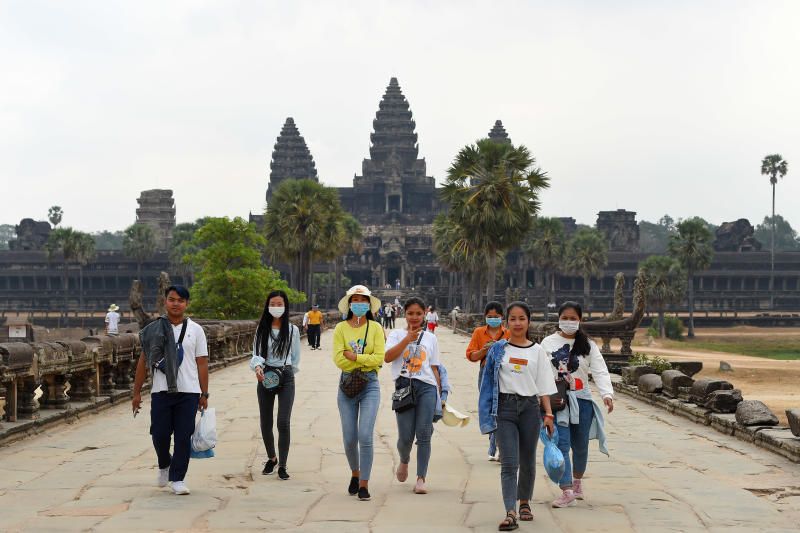
- Portfolio investments → Cambodian passports
In addition, if you have cash and you want to put it into business, then you should think about obtaining citizenship by investment. Now the average cost of citizenship is about $ 75,000, which is much more profitable than obtaining citizenship in the Dominican Republic – $ 95.00 (this is per person, and an additional $ 120,000 per family) or in Saint Kitts and Nevis (where this process is based real estate investment), where you pay over $ 500,000, including taxes. Among other things, a Cambodian passport will give you visa-free access to all ASEAN countries. Cambodia’s passport can be obtained without any problems through investing in the country. In many cases, this will be a slightly gray passport, so you need to be sure of the people you will contact.

- Condominiums → Apartment investments
In recent years, the most profitable and reliable investment destination in Cambodia remains an apartment in a condominium. Condominiums are, as a rule, newly built high-rise buildings, fully equipped for housing. Condominium apartments are usually privately owned. The wide distribution of this type of housing gives freedom in choosing a district. From sleeping, far from tourist centres to the most streaming. However, there are concerns that the property market will collapse and that a bubble has been caused by the recent explosion in prices.
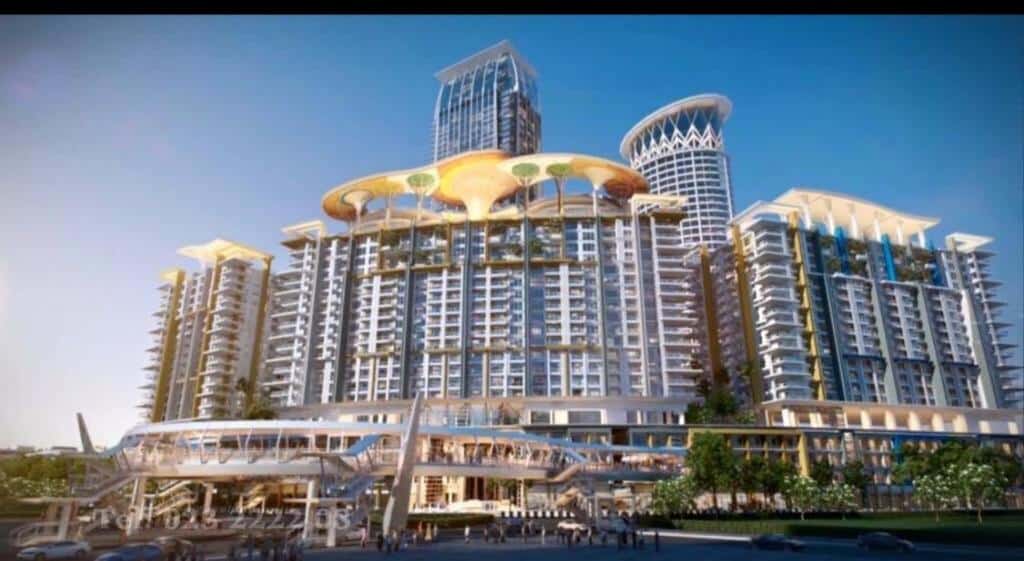
What is convenient apartment in a condominium?
They are delivered with a repair, furniture and technical, fully prepared to be populated. Condos typically have amenities such as a pool and gyms, and also offer a range of services. There is a guaranteed rental price, so you can get a good income at a rate of 7-10% from the cost of the project, but not very expensive.
The success of your investment will directly depend on the competence and experience of the realtor. Therefore, acquiring housing in Asia, it is safer and easier to do this through a specialized agency.
What to look for when choosing an agency and what to expect?
Customer support deals must be free of charge. Pay attention to ratings, live reviews and availability of all documents at the agency, give the right to an agent for their activity. The transaction can last from weeks to several months, but all the steps can be carried out remotely, without the personal presence of the device.
The buying process consists of several parts.
- Reservation of the object and deposit. At this stage, your apartment is being booked. The charge is immediately: usually it is at least 1% of the total amount of the property. If the transaction is not made, the deposit is not returned.
- The conclusion of the agreement. The second stage is the preparation and closing of the main heating supply. They are interested in all the features of the property, the conditions of the acquisition and other nuances.
- Payment. When the main contract is subscribed, you need to enter the balance of the program. It is possible to transfer money from any account, the origin of the money has no value. 4% tax on immovable property is paid only when buying, there is no annual fee.
- Two most logic reasons to invest.
- Young workers
Cambodia has a lot of smart and young workers, and the country has a great advantage over neighboring Vietnam and Thailand in that foreigners own 100% of the company’s shares here.
- New stock market
Any stock market marks an important exit strategy for business owners, and the fact that there is at least one such market in Cambodia is very encouraging. The presence of only one such company at the moment can be considered as an opportunity for you to profitably and unhindered the placement of primary shares (IPO).
If you do not want to go to Cambodia or make direct investments, then you can open an account on the Cambodian Securities Exchange (CSX). At the time of this writing, there was only one stock market – a public water supply company, the so-called Phnom Penh Water Supply (PPWS), and investing in it would not be such a wise decision.
As is the case with other public companies, an open offer is essentially a exit strategy for beginner investors, and many do not make a profit, but lose it. The question of whether you should play in the stock market should be: “What do you want to get: liquidity (free input and output of assets) or income (more benefits with its long withdrawal)?”
If you are patient and do not need constant access to your investment money, and you are basically ready to invest, then you should think about OPENING A COMPANY IN CAMBODIA.
You can be both a private entrepreneur and a legal entity. There are practically no restrictions. To acquire land in Cambodia, you will need a Cambodian partner who will own 51% of this land. Sureties and powers of attorney are not uncommon here.
- The Law on Investments is quite progressive and does not impose any restrictions on making a profit and taking it abroad.
- Licenses are required for a small number of specific activities.
Opening a company in Cambodia as a foreign representative
Perhaps the registration of a branch or representative office is the simplest and recommended procedure. Your main company can be anywhere, you can also use a bank account in Singapore or Hong Kong or use a jurisdiction that allows you to work with large amounts, and all this will be the safest for banking purposes and money circulation. Many customers prefer to bill or pay in Hong Kong dollars, US dollars, or Singapore dollars, rather than Cambodian riels.
- Can foreigners buy Cambodian property?
As you already understood the best way to have a high income is to buy a property, but can a non-resident or a foreigner buy a property in Cambodia and make money?
Cambodia not only allows foreign investment, but also encourages them, perhaps more than anywhere else in Southeast Asia. Creating almost any type of business with 100 percent foreign ownership is easy.
An annual multiple entry visa costs $ 250 and is issued in a few days. Staying in Cambodia with a long-term visa is simple and cost-effective. For property buyers, foreigners may be entitled to own condominium apartments on their own behalf. The general consensus is that new condominium buildings are overrated.
You can often find the best deals in old apartment shops left over from colonial times. Land with development potential is also promising for active investors. However, for these two types of real estate, everything is becoming more difficult, since foreigners cannot directly own anything other than a condominium.
A land holding is more legally protected, but requires annual license fees and monthly tax returns. Profits can be worth the extra effort and expense if you buy property on a larger scale in Cambodia.
In addition to title rights, another feature on the Cambodian real estate market is the distinction between “hard rights” and “soft rights”. Both grant you the legal status of unconditional ownership and must belong to either a Cambodian person or a Cambodian company.
“Hard rights” are registered through the land registry of the national government and give property owners an undeniable right. Soft Rights are instead registered through the local government. “Soft”, at least theoretically, are not as iron as “hard.”
In fact, more than 90 percent of real estate in Cambodia belong to “soft rights.” And they serve as legal, government-recognized proof of ownership. Soft are strong enough. Therefore, almost any local bank will accept them as collateral for a secured loan.
Most Cambodians even prefer soft-property because the transfer fee is much lower.
Not only this, but also the local government spends much less time processing information than the national government. Everything can be solved in a few days, not months – which makes life especially easy.
With that said, due diligence is a good idea. Real estate investors often hire a lawyer. To talk with neighbors, view the land registry. And make sure that the seller of real estate with “soft law” is truly the true owner and does not have burdens.
- How much are property taxes?
Annual property taxes account for 0.1 percent of the market value of real estate. About 25,000 US dollars. Needless to say, annual taxes in Cambodia are very low and often not even paid.
Rental income tax revenues for residents are 10 percent. For non-residents, rental income is instead taxed above 14 percent. Various deductions can be applied, which can significantly reduce rates.
Unused land is taxed at a fairly high rate of 2 percent of its market price each year. Because of this, Cambodia cannot have a “land bank” without paying unreasonable taxes. Land acquisition should be immediately developed and used to generate income as quickly as possible. If you speak with the locals, you will find that most of them are not even registered in the tax system. Thus, in Cambodia, it is virtually impossible to enforce these taxes.
Is it safe to buy property?
From a legal point of view, foreigners enjoy unconditional ownership and full control over their property, if everything is done correctly, and you buy the right kind of property.
Nevertheless, especially in the case of soft rights, it is important to talk with neighbors and look at the public report of the land administration.
Make sure there are no complaints about the property you are buying.
Although this is rare, people often sell real estate that is mortgaged or otherwise challenged. This can easily be avoided with due diligence. It is also important to remember that foreigners cannot legally own the properties of “soft” or “hard rights” on their behalf.
Conclusion
Cambodia is much more liberal for business and other kinds of investing than most countries in the region.
In general though, the property market is too risky, and the currency might suffer more than most due to coronavirus.
Better investments exist.
Further Reading
What options exist for expats living in Cambodia and beyond.

